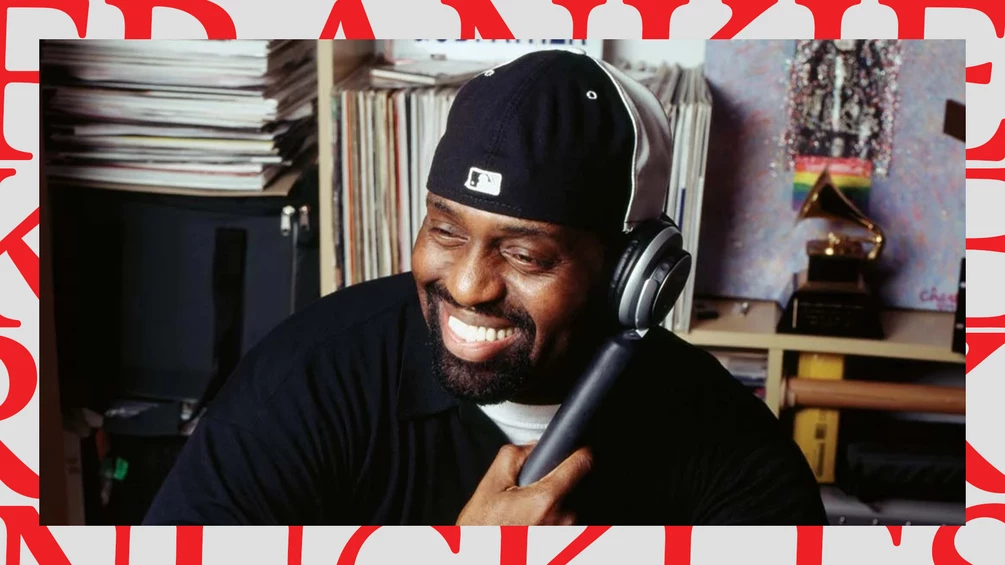
No name is quite as synonymous with the birth of house music as that of the late, great Frankie Knuckles, who was born on 18th January 1955. Of course, the evolution of house from the DNA of disco — and, to lesser extents, electro, industrial, Italo and new wave music — was no solo endeavour: a family tree of progenitors from Chicago’s underground including Ron Hardy, Farley "Jackmaster" Funk, Jesse Saunders and Chip E all played key roles. But, as the story goes, it was the revered DJ and producer born Francis Warren Nicholls Jr’s sets at predominantly Black and gay clubs like The Warehouse that gave disco’s revenge its name. There is a reason why, to this day, he is known as The Godfather of House.
The schematics of Knuckles’ life and career are well known — or certainly should be — to pretty much every student of house music. Growing up in the Bronx, New York City, Frankie and his friend Larry Levan — himself a future pioneer in the art of DJing — started attending discos like The Loft and The Gallery as teenagers, soaking in the musical wisdom that the former’s David Mancuso and the latter’s Nicky Siano were providing. Before long, Knuckles was putting that knowledge to good use; he played his first DJ set at Tee Scott's Better Days venue before taking on a years-long stint as DJ at the Continental Baths.
In 1977, Knuckles moved to Chicago and became resident DJ at The Warehouse, where he remained until its closure in 1982, after which he opened his own club, The Power Plant. In that time, he learned his way around the reel-to-reel and TR-909, which enabled him to re-edit and extend disco breaks and intros of records for his DJ sets. Full-scale music production came next, followed by a move back to New York in the late ’80s. With international DJ status and a stream of pioneering records to his name, his status as house music’s premiere ambassador was soon set — he even won the Grammy for Remixer of the Year in 1998, the category’s inaugural year.
But it’s more than the details of his bio, more even than his unassailable discography and DJ sets, that have made Knuckles such a beloved figure in the annals of house — it’s the man himself. Warm, generous, gracious and quick with a smile, he was gifted with a quiet charisma that was clear to anyone who met him, heard him play, or even breathed the same air he did. He helped spread the gospel of house through the sheer force of his personality. As Judy Russell, who as the head of the Def Mix DJ agency helped steer Knuckles’ career from the late ’80s onward, once said: “You just wish you could have bottled him up, he was so special.”
But, naturally, the music itself did help, and almost all of it seemed to beam straight from Knuckles’ heart. “He was one of the baddest motherfuckers — one of the baddest DJs, remixers, producers, artists — since the early ’80s, case closed,” his friend, collaborator and fellow Def Mix artist David Morales recalled in a recent piece in the Faith fanzine. “He was everything, at that time, that everybody wants to be today. He was so ahead of his fucking time.”
On 31st March 2014, Frankie Knuckles tragically died due to complications stemming from his Type 2 diabetes. He was 59. 11 years on, his legacy feels as strong as ever. As a quiet advocate of keeping it real — and meaningful, and beautiful — within the house realm, his impact remains as vital as it's ever been, largely thanks to the music he left behind. To mark what would have been his 70th birthday, DJ Mag has compiled just some of his best productions, remixes and contributions, as well as a series of mixes from his days at the Warehouse to a joyous set in an intimate NYC industrial space recorded less than two years before he left us. Really, Knuckles has never disappeared — like disco’s revenge itself, the Godfather of House is eternal.
Dive in below.
